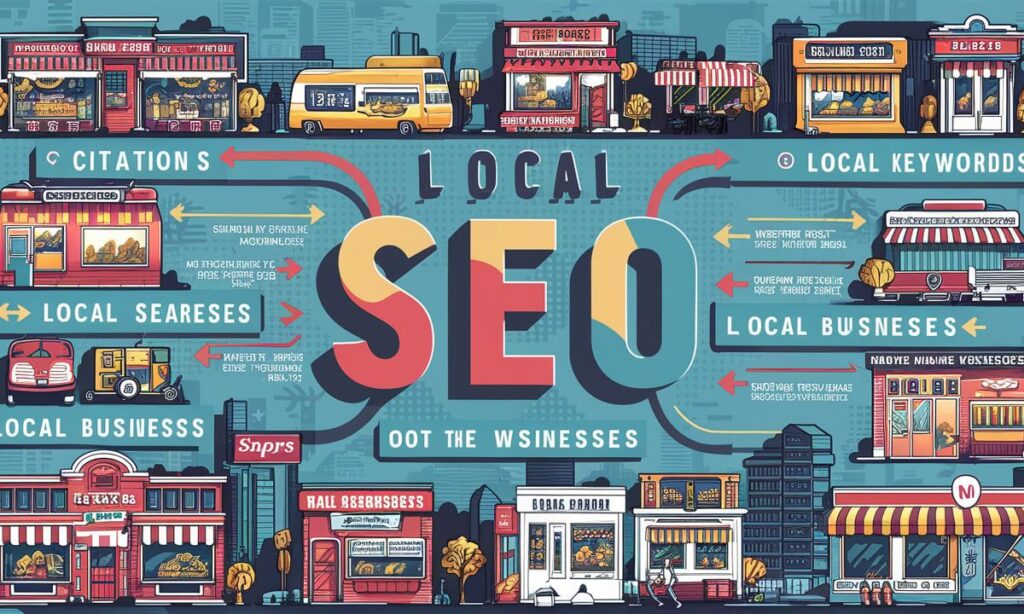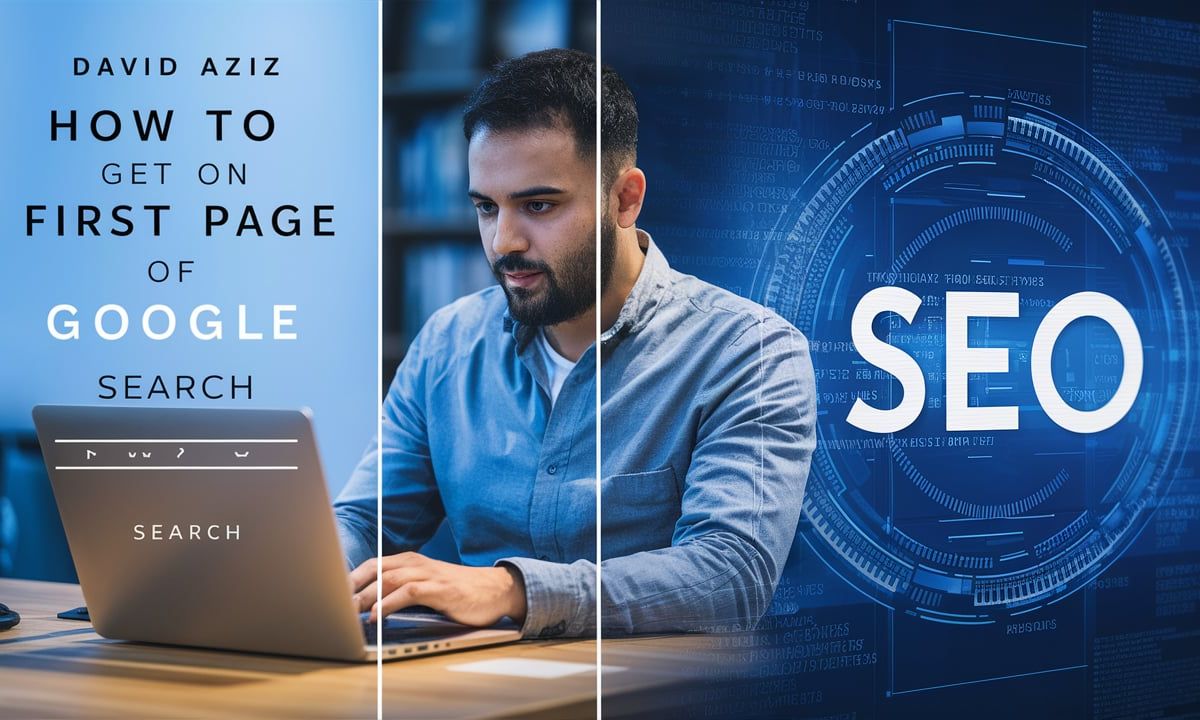When it comes to online visibility, ranking on the first page of Google is a game-changer. Whether you’re an entrepreneur, blogger, or business owner, getting your website to the top can drive massive traffic and increase credibility. Search engine optimization is the key to achieving this goal. In this guide, we will explore various strategies shared by David Aziz, a recognized name in the SEO industry, to help you rank higher on Google.
Understanding Google’s Ranking System
Google’s search algorithm is designed to provide the most relevant and high-quality content to users. It evaluates websites based on hundreds of Google ranking factors, including keyword analysis, on-page SEO, backlink strategies, and user experience. Understanding these elements is the first step toward improving your website’s search ranking.
One important aspect to remember is that SEO is not an overnight process; it requires continuous effort, testing, and optimization. If you apply the right SEO techniques, your site will gain authority over time, making it easier to rank on the first page of Google.
Keyword Research – The Foundation of SEO

Before creating content, it’s crucial to find the right keywords. Keyword research helps you understand what people are searching for and how competitive those terms are. Using tools like Google Keyword Planner, Ahrefs, or SEMrush, you can find high-ranking keywords related to your niche.
For instance, if you’re targeting “How To Get On First Page Of Google Search,” you need to focus on related search terms such as “content marketing,” “SEO techniques,” and “organic search.” Once you identify the right keywords, naturally incorporate them into your website content, headings, and meta tags.
Avoid keyword stuffing, as Google penalizes websites that overuse keywords unnaturally. Instead, use variations and long-tail keywords to make your content more readable and relevant.
The Importance of On-Page SEO
Optimizing on-page elements is crucial for better Google rankings. This includes:
| Element | Importance |
| Title Tags | Ensure your title is engaging and contains the target keyword. |
| Meta Descriptions | A compelling meta description increases click-through rates. |
| Header Tags | Organize your content with proper headings. |
| URL Structure | Keep URLs short, clean, and keyword-optimized. |
| Internal Links | Link to other relevant pages on your site to boost credibility. |
| Image Optimization | Use high-quality images with alt text that describes the image content. |
When done correctly, on-page SEO not only improves rankings but also enhances readability and engagement.
The Power of Backlinks in SEO
Backlinks—links from other websites pointing to your site—are one of Google’s strongest ranking signals. The more high-quality backlinks your site has, the more authority it gains in Google’s eyes.
To build backlinks effectively, focus on:
- Guest Blogging: Writing articles for reputable websites in your industry.
- Content Marketing: Creating shareable content that naturally attracts backlinks.
- Networking & Outreach: Reaching out to bloggers, influencers, and industry experts for link collaborations.
- Social Media Sharing: Promoting your content across different platforms to increase visibility.
Not all backlinks are equal. Aim for links from reputable sites rather than spammy or low-quality sources. A strong backlink building strategy will significantly boost your search engine rankings.
Technical SEO & Website Optimization
Beyond content and links, technical SEO plays a vital role in improving search rankings. Google considers how well your website is structured and how fast it loads.
To optimize your website, focus on:
- Mobile-Friendliness: Google prioritizes mobile-friendly sites. Ensure your site is responsive and adapts to different screen sizes.
- Page Speed: Slow-loading websites lead to higher bounce rates. Use tools like Google PageSpeed Insights to analyze and improve your site’s speed.
- Secure HTTPS Protocol: Google favors secure websites. If your site is still on HTTP, switch to HTTPS for better security and ranking benefits.
- Fixing Broken Links & Errors: Regularly check for broken links and fix 404 errors to maintain a healthy website structure.
By ensuring your site is technically optimized, you enhance user experience and make it easier for search engines to crawl and index your pages.
Content is King – Create Value-Driven Content
Google rewards websites that provide high-quality, valuable content. Your goal should be to create content that is informative, engaging, and relevant to your audience.
Here are some content tips to improve your rankings:
- Write Long-Form Content: In-depth articles (1,500+ words) tend to rank higher.
- Use Engaging Headlines: Attention-grabbing headlines improve click-through rates.
- Add Visuals: Images, videos, and infographics make content more engaging.
- Update Old Content: Refresh outdated content with new information to maintain relevance.
If your content provides real value, users are more likely to share it, leading to increased visibility and backlinks.
Local SEO – Optimizing for Local Searches
For businesses targeting local customers, local SEO is essential. Optimizing for Google My Business (GMB) can improve your chances of appearing in local search results.

To enhance local SEO:
- Claim & Optimize Your GMB Listing: Ensure all business information is accurate.
- Get Customer Reviews: Positive reviews improve credibility and rankings.
- Use Local Keywords: Include city and region-specific keywords in your content.
- Build Local Citations: List your business on directories like Yelp, Yellow Pages, and industry-specific platforms.
Local SEO helps businesses attract nearby customers and improves online visibility.
Monitoring & Improving SEO Performance
SEO is not a one-time task—it requires continuous monitoring and improvements. Using tools like Google Analytics, Search Console, and SEMrush, you can track performance and adjust strategies accordingly.
Key metrics to monitor include:
- Organic Traffic: The number of visitors coming from search engines.
- Bounce Rate: The percentage of visitors who leave without interacting.
- Keyword Rankings: Tracking how well your site ranks for targeted keywords.
- Conversion Rates: Measuring how many visitors take desired actions (e.g., sign-ups, purchases).
Regularly analyzing these metrics helps refine your SEO strategies and stay ahead of the competition.
FAQs
What is SEO and why is it important?
SEO, or search engine optimization, is the practice of enhancing website visibility in search engines. It’s important because higher rankings lead to increased traffic, credibility, and ultimately, conversions.
How do I choose the right keywords?
Use tools like Google Keyword Planner or SEMrush to find keywords relevant to your niche. Look for terms with high search volume and low competition.
What are backlinks, and why are they important?
Backlinks are links from other websites to yours. They are important because they signal to search engines that your content is credible and valuable, which can improve your rankings.
How can I improve my website’s loading speed?
You can improve loading speed by optimizing images, using a content delivery network (CDN), and minimizing the use of heavy scripts.
What is local SEO?
Local SEO involves optimizing your online presence to attract more business from relevant local searches. This includes managing your Google My Business listing and using local keywords.
Conclusion
Getting on the first page of Google search results requires a well-planned SEO strategy, continuous optimization, and patience. By focusing on keyword research, on-page SEO, backlink building, website optimization, and high-quality content, you can significantly improve your website’s ranking. Whether you’re a business owner, blogger, or digital marketer, implementing these techniques will help you achieve better visibility and increased traffic.
David Aziz emphasizes that SEO success is not about shortcuts but about consistent effort and adapting to algorithm updates. Keep monitoring your progress, refine your approach, and stay ahead of the competition. If you follow these SEO best practices, your website will have a better chance of appearing on Google’s first page, driving organic growth, and boosting your online presence.
fore more detalies visit GRAMMARGURUS

I m John Nicker a Content Writer and SEO Expert with 5 years Experiness. I have Already work on BBC News Website.
















